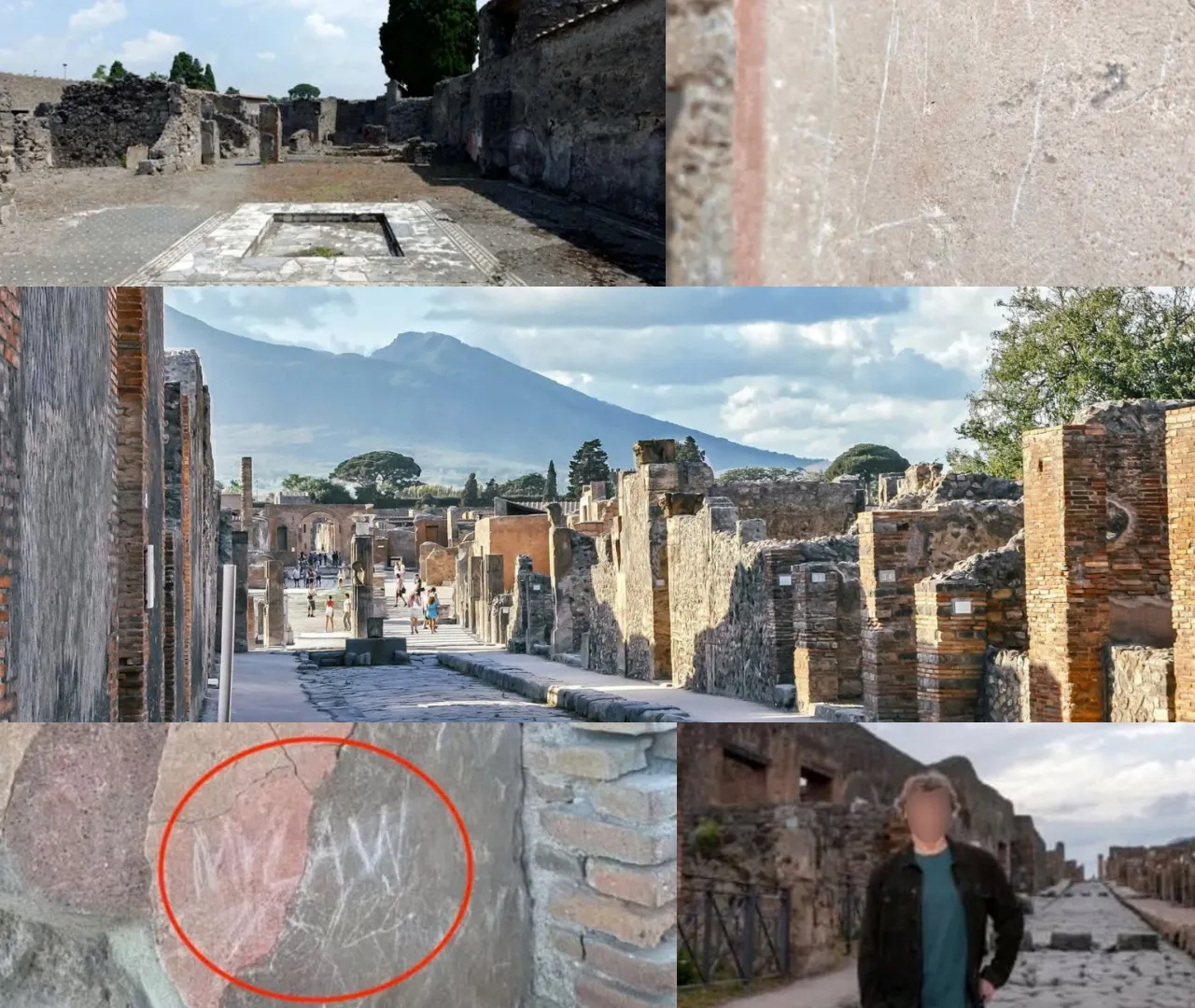
Many tourists want to capture their memories at famous attractions, but sometimes this can lead to serious consequences.
The ancient city of Pompeii in Italy, which has perfectly preserved streets and houses from nearly 2,000 years ago, offers visitors a unique opportunity to explore the lives of people from ancient Roman times.
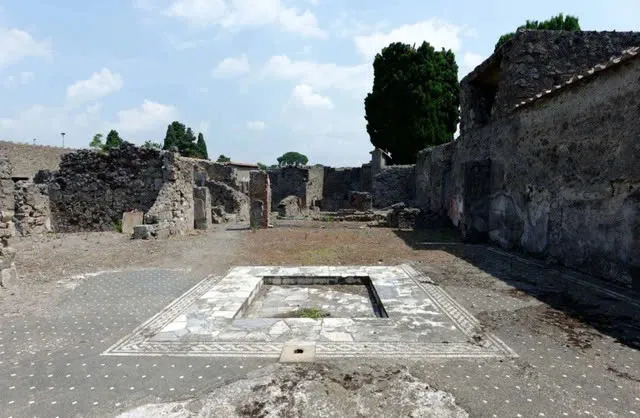
Ancient city of Pompeii, the location where visitors carved their names on the wall. Photo: CNN
However, an unfortunate incident occurred recently when a British tourist was arrested for carving his and his family’s initials on the wall of a 2,000-year-old house during his visit. This incident not only damaged the historical site but also raised the issue of preserving and respecting cultural heritage.
The 37-year-old man, who has not been named, is believed to have made five engravings – his family’s initials and the date August 7 – with a blunt object on the wall of the House of the Vestal Virgins.Photos of the damage show the letters scratched into the wall next to the entrance, which was decorated in red nearly 2,000 years ago.
The letters “JW LMW MW” are clearly visible on the wall and “MYLAW 07/08/24” below.
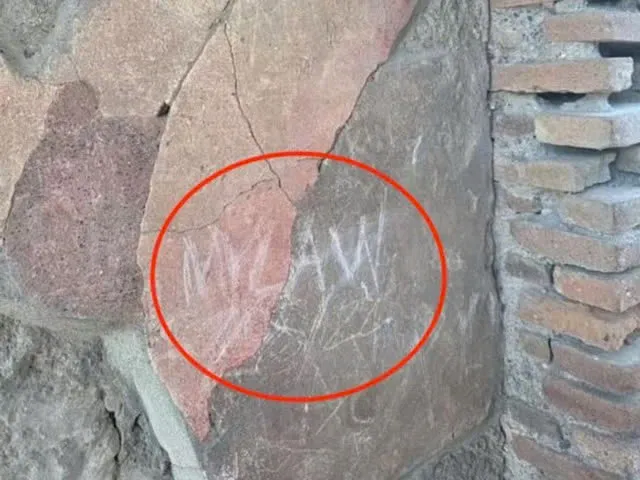
The word “memory”.
Staff at the scene noticed the damage and called the police. According to Italian news agency ANSA, the man apologised and said he had written his initials and those of his two daughters as a souvenir to show that they had visited the site.
The Pompeii archaeological park declined to comment to CNN on the recent incident, but in June, when a tourist from Kazakhstan was caught carving his initials into the House of Ceii in the ancient city, Director Gabriel Zuchtriegel announced that the tourist would be responsible for the cost of the wall’s restoration. The case has been referred to the local court in Torre Annunziata on charges of “damage to artistic heritage,” which could result in a fine of 20,000 to 60,000 euros, as well as a prison sentence of up to five years, thanks to Italy’s increasingly strict laws protecting cultural heritage.
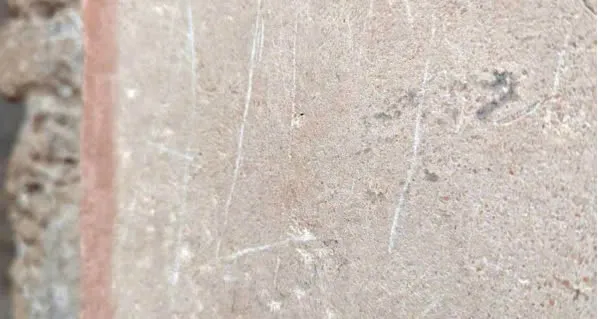 Kazakh tourists carve their names on an ancient wall in Ceii House in June. Photo: ATI.
Kazakh tourists carve their names on an ancient wall in Ceii House in June. Photo: ATI.
The current law covers acts of destroying or damaging cultural heritage, with a lighter fine of up to 40,000 euros for defacing heritage. Pompeii, a vast archaeological site, has been a frequent victim of vandalism by unscrupulous tourists, with cases of names being carved and objects stolen from excavations that began in the 18th century. In 2022, an Australian tourist even drove a motorbike around the ancient site, raising further concerns about the protection and maintenance of this precious cultural heritage.
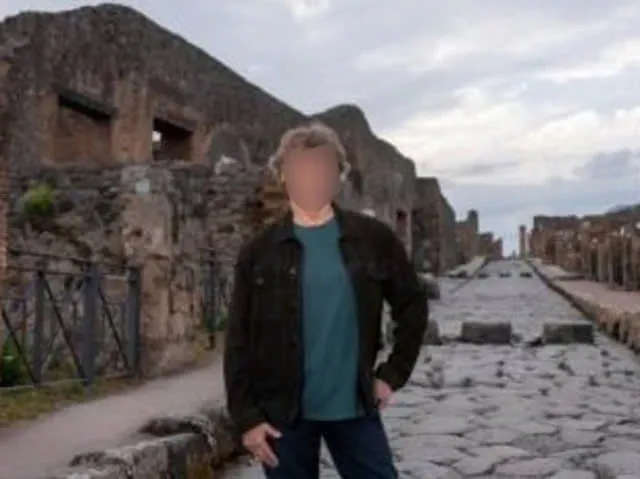 British male tourist.
British male tourist.
Tourists appear to be showing increasingly poor behavior in Italy, a country renowned for its top-notch art and archaeological sites. These precious sites, which are more vulnerable than many other sites, are frequently the target of vandalism and disrespect from tourists. This not only damages cultural heritage but also poses a major challenge to the preservation and protection of the country’s priceless heritage. Raising awareness and respect for cultural heritage is essential to ensure that these historical treasures can be preserved for future generations.






